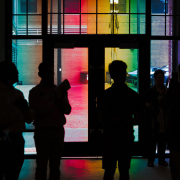America is Strangely Fond of Chemically Modifying its Children
The recent decision by the National Health Service to ban puberty blockers under prescription outside of upcoming clinical trials is a rare indication that common sense and biological reality are staging a comeback. However, this ruling is but a small victory against a growing trend that places ever less emphasis on family, marriage and children.
The battle of the sexes shifting into a battle of infinite sexes represents a key front in this age of familial and gender confusion. Today over 28 per cent of all Gen-Z women identify as LGBTQ, more than twice the rate for millennials and almost three times that for young men.
This break with heterosexual norms has many sources. Women generally outnumber men: 75 per cent of Ivy League presidents, 66 per cent of college administrators, and 58 per cent of recent graduates are now female. On college campuses, as author and longtime feminist Susan Jacoby notes, even the most sensitive and sympathetic men “have been robbed of their true nature and humanity.”
Alienation from heterosexuality has its cheering section in the scientific community, which increasingly denies even the existence of biological sex. The media is, unsurprisingly, on board: Andrea Chu’s New York Magazine’s cover The Freedom of Sex openly advocates letting children decide about their own gender while still young. Colleges do their part by allowing transgender women to compete against biological women, to the consternation of many female athletes.
Transgenderism even gets a boost from the highest echelons of government. Secretary of State Anthony Blinken may fail to address Russia, Hamas or Iran, but has time to urge diplomats to eschew “sexist” words like father. The President himself has promoted transgenderism as the “civil rights issue of our time.”
In such circumstances, it’s no surprise that relations between men and women increasingly resemble those of almost different species. Young men, for example, are generally heading to the political right while young women trend far more towards the left. Politically engaged women, notes the American Enterprise Institutes Sam Abrams, support cancel culture far more than their male counterparts. This divergence is not only felt in America but exists in other countries including the UK, Germany and South Korea.
Faltering relations between men and women are likely to worsen a mounting demographic crisis now evident in virtually all high-income societies. In the US, a quarter of all people have not married by age 40, a historic record. Much the same is occurring in the EU, Japan, Taiwan, South Korea, Singapore, Hong Kong and now China. Last year, the UK’s birthrate hit a record low, with fertility rates for women under 30 at their lowest levels since records began in 1938. A fifth of all British women are childless by mid-life.
Even when people have children, they increasingly do it on their own. In the United States, the rate of single parenthood has grown from 10 per cent in 1960 to over 30 per cent today. Between 1972 and 2019, the number of marriages in Britain dropped by half. Post-familial attitudes are, if anything, even more common in continental Europe. By 2000, more than half of births in Sweden were to unmarried women (though most of them cohabiting).
Read the rest of this piece at Telegraph.
Joel Kotkin is the author of The Coming of Neo-Feudalism: A Warning to the Global Middle Class. He is the Roger Hobbs Presidential Fellow in Urban Futures at Chapman University and and directs the Center for Demographics and Policy there. Learn more at joelkotkin.com and follow him on Twitter @joelkotkin.
Photo: Ted Eytan via, Flickr, under CC 2.0 License.



 Fred Murphy, used under CC 2.0 License
Fred Murphy, used under CC 2.0 License



